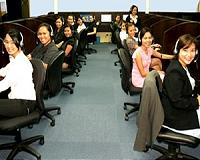| . |  |
. |
Washington (AFP) Dec 6, 2010 China should work to ease a range of trade disputes with the United States at economic talks this month, ahead of President Hu Jintao's state visit here in January, US lawmakers said Monday. In a letter to Chinese Vice Premier Wang Qishan, 32 US senators of both major US parties said it was "imperative" that both sides "work together constructively" to defuse major economic rows before Hu gets to Washington. They cited allegedly rampant intellectual property theft in China, policies that favor domestic firms over their global competitors in the name of "indigenous innovation," and restrictions on imports of US beef. And they pressed for China to let the yuan rise against the dollar -- a longstanding request from Washington. Critics charge that Beijing keeps its currency, and thereby its exports, artificially cheap. "We urge China to demonstrate its commitment to adopting a market-determined exchange rate by allowing its currency to appreciate meaningfully in advance of President Hu's visit," the senators wrote. The lawmakers -- led by Senate Finance Committee Max Baucus, a Democrat, and the panel's top Republican, Senator Chuck Grassley -- urged progress in talks this month of the US-China Joint Commission on Commerce and Trade (JCCT). "The US-China economic and strategic relationship is vitally important. But in order to keep that relationship on track, the United States and China must find ways to constructively address persistent concerns that plague us," they said. "We are confident we can do so, and we look forward to working together to develop a deeper, mutually beneficial relationship." The lawmakers warned "there is no scientific basis" for China's curbs on US beef imports and urged "immediate, material steps" by Beijing to open its markets. The letter came weeks after the US Congress received a report alleging that China is following "highly discriminatory" economic practices that favor domestic trade over foreign imports, an effort that harms the US economy. "Under the guise of fostering 'indigenous innovation' in its economy, the government of China appears determined to exclude foreigners from bidding on government contracts at the central, provincial, and local levels," said Dan Slane, chairman of the US-China Economic and Security Review Commission. Warning Beijing is failing to fulfill pledges made in 2001 upon joining the World Trade Organization (WTO), Slane said the Chinese government "quite simply intends to wall off a majority of its economy from international competition." China launched its "indigenous innovation" campaign in 2006, officially to encourage the development of domestic technology and thereby reduce its reliance on foreign know-how. Tensions flared after Beijing issued rules late last year under the innovation campaign that were widely seen by foreign businesses as squeezing them out of the government's multi-billion-dollar procurement market. The Chinese commerce ministry has however denied US charges that it forces foreign firms to hand technology over to Chinese rivals as a price of entry to its huge market. A ministry official told AFP in July that the policies are in line with WTO rules.
Share This Article With Planet Earth
Related Links Global Trade News
 Philippines overtakes India as call centre capital
Philippines overtakes India as call centre capitalManila (AFP) Dec 6, 2010 The Philippines has become the call centre capital of the world, overtaking India as the number one player in the global business outsourcing market, according to industry data and the government. President Benigno Aquino has led celebrations in recent weeks as it has become increasingly clear that the Southeast Asian nation has become the world's dominant player in the outsourced back-offic ... read more |
|
| The content herein, unless otherwise known to be public domain, are Copyright 1995-2010 - SpaceDaily. AFP and UPI Wire Stories are copyright Agence France-Presse and United Press International. ESA Portal Reports are copyright European Space Agency. All NASA sourced material is public domain. Additional copyrights may apply in whole or part to other bona fide parties. Advertising does not imply endorsement,agreement or approval of any opinions, statements or information provided by SpaceDaily on any Web page published or hosted by SpaceDaily. Privacy Statement |